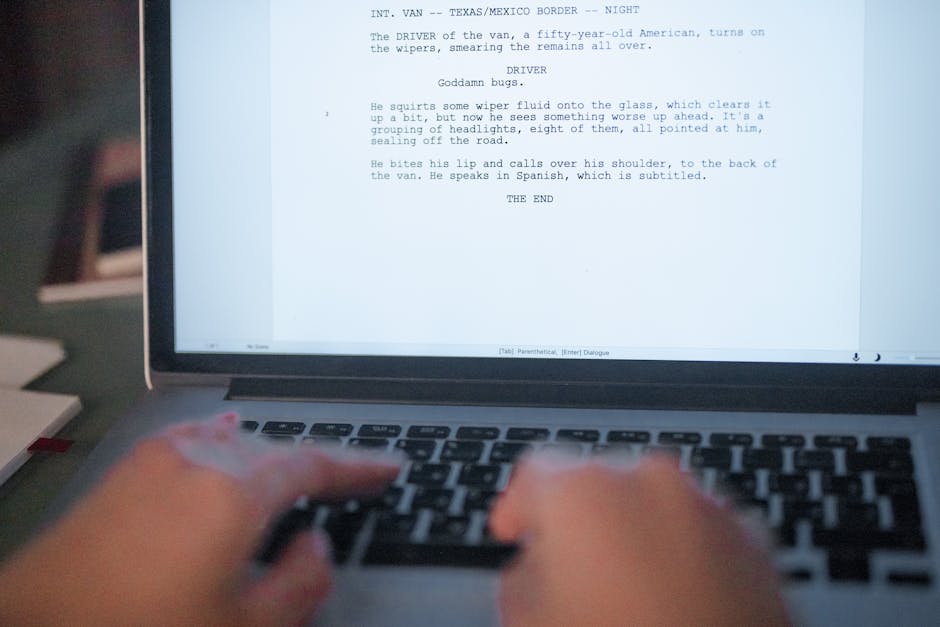Understanding GPT Models for Scriptwriting
GPT models, like Screenplay GPT, are revolutionizing scriptwriting. These AI tools assist in generating screenplay ideas, creating character sketches, and crafting plot outlines. They function as brainstorming partners, drawing inspiration from cinematic masterpieces to produce engaging stories.
Screenplay GPT excels at developing complex characters and structuring cohesive plot outlines. It offers insights into filmmaking techniques, helping writers analyze elements like pacing, tone, and atmosphere. The model's flexibility allows it to adapt to various styles, from noir to sci-fi.
While these tools enhance storytelling, they're designed to complement rather than replace the writer's unique voice. Screenplay GPT provides a foundation that writers can refine into original, standout scripts.

Comparison of AI Tools for Scriptwriting
Screenplay GPT and ChatGPT Canvas offer distinct features for different scriptwriting needs:
- Screenplay GPT: Specializes in story development, excelling at plot outlines and character creation. It's particularly adept at emulating award-winning film styles and is user-friendly for initial script creation stages.
- ChatGPT Canvas: Focuses on script refinement. It provides a collaborative workspace for detailed editing, supporting structured feedback and iterative development. Its real-time dialogue adjustment and scenario expansion features make it ideal for polishing drafts.
Both tools are accessible, but they shine in different areas. Screenplay GPT is better for idea generation and initial development, while ChatGPT Canvas excels in extensive editing and collaborative refinement. The choice between them depends on your current writing stage and specific needs.
The Human-AI Collaboration in Scriptwriting
The partnership between AI tools and human writers combines technological efficiency with human creativity. AI tools like Screenplay GPT and ChatGPT Canvas handle time-consuming tasks such as generating ideas and structuring plots, allowing writers to focus on infusing scripts with emotional depth and authenticity.
In plot development, AI offers guidance on story structure and suggests themes to enhance narrative complexity. However, human writers are crucial for crafting relatable characters, nuanced dialogues, and authentic emotional arcs that resonate with audiences.
For scene creation, AI can help with setting visualization and event progression, while human writers bring scenes to life with atmospheric details and emotional undertones. This collaboration results in scripts that are both technically sound and emotionally compelling, striking a balance between structural integrity and narrative appeal.
Challenges and Limitations of GPT in Scriptwriting
Despite their capabilities, GPT models face challenges in scriptwriting:
- Struggle with crafting nuanced dialogue, often resulting in stiff exchanges
- Difficulty maintaining coherence in long scripts, potentially leading to disjointed narratives
- Dependence on the quality of user prompts for effective output
- Lack of emotional depth and originality compared to human writers
These limitations underscore the importance of human input in the screenwriting process. GPT models work best as collaborative tools, providing a foundation that human writers shape with emotional depth and creativity.
Future Prospects of AI in the Screenwriting Industry
AI is poised to transform various aspects of the screenwriting industry. Tools like Screenplay GPT and ChatGPT Canvas are making high-quality screenwriting aids more accessible, potentially leveling the playing field for newcomers and independent filmmakers.
The evolution of AI in screenwriting is sparking debates about creativity. While AI can offer innovative ideas and story structures, human writers remain essential for infusing scripts with emotional depth and complex characters.
"Why should writers sit around for months searching for a good idea when AI can provide one in seconds?" – Paul Schrader, Oscar-nominated writer/director
For screenwriters, adapting to AI advancements means embracing these technologies as complementary tools. This shift could allow writers to focus more on storytelling aspects they excel at, while relying on AI for tasks like plot structuring and scene organization.
The future of AI in screenwriting lies in the synergy between human ingenuity and machine efficiency. This collaboration has the potential to produce a richer variety of stories, each uniquely enhanced by the possibilities AI brings to the creative process.
The collaboration between human creativity and AI assistance is reshaping scriptwriting. By combining AI's structural capabilities with human emotional insight, writers can produce scripts that are both technically sound and emotionally engaging, expanding storytelling possibilities in the process.
- Schrader P. Facebook post on ChatGPT and screenwriting. Facebook. 2023.
